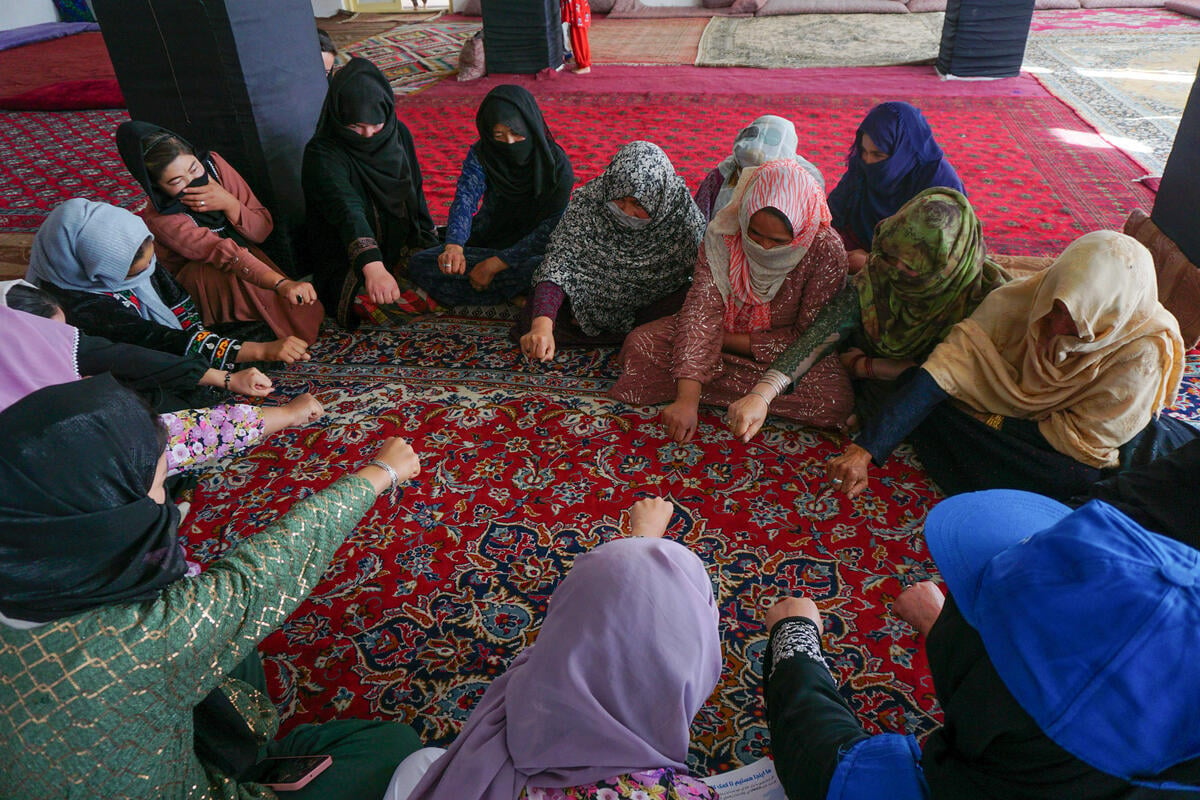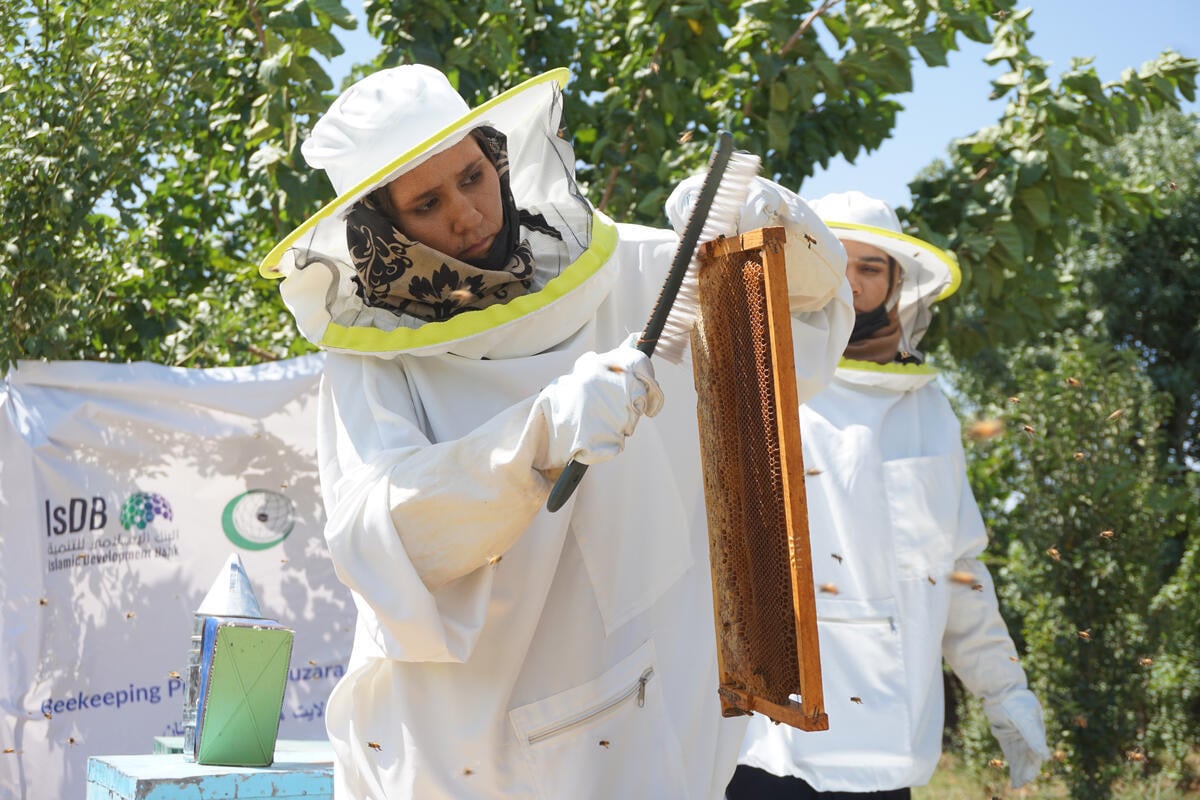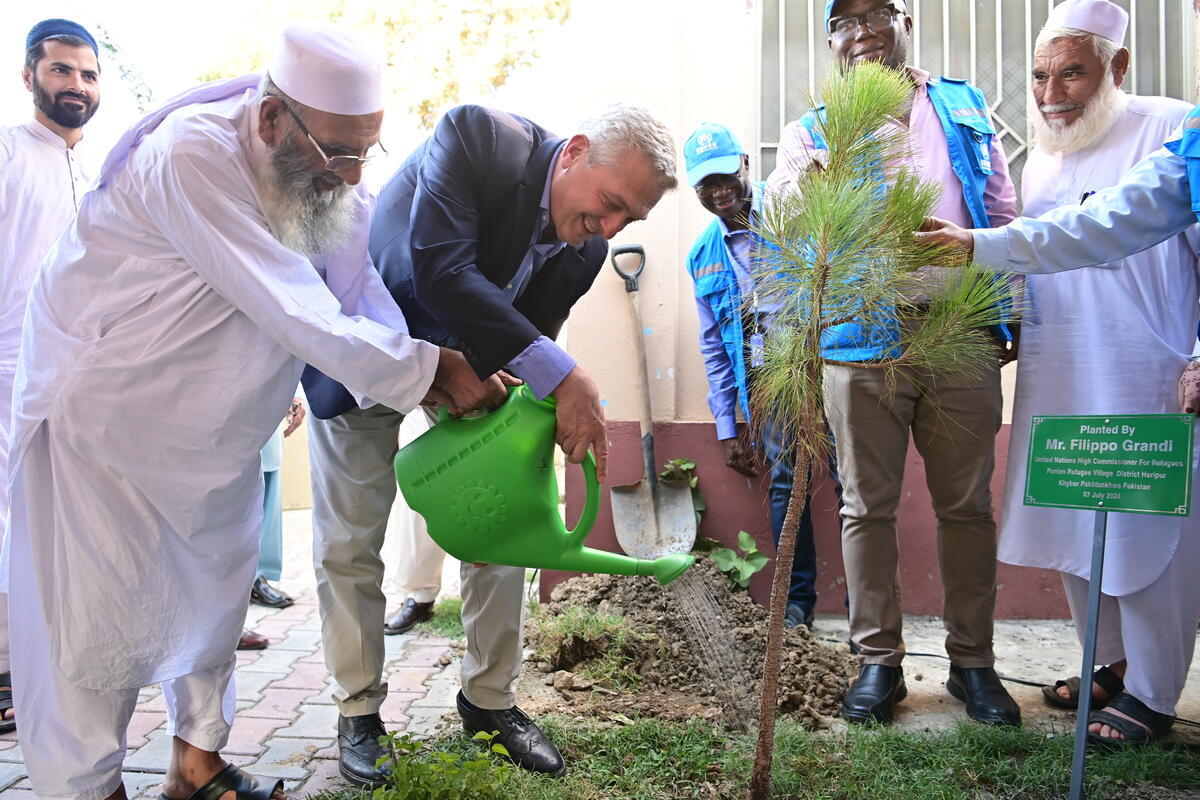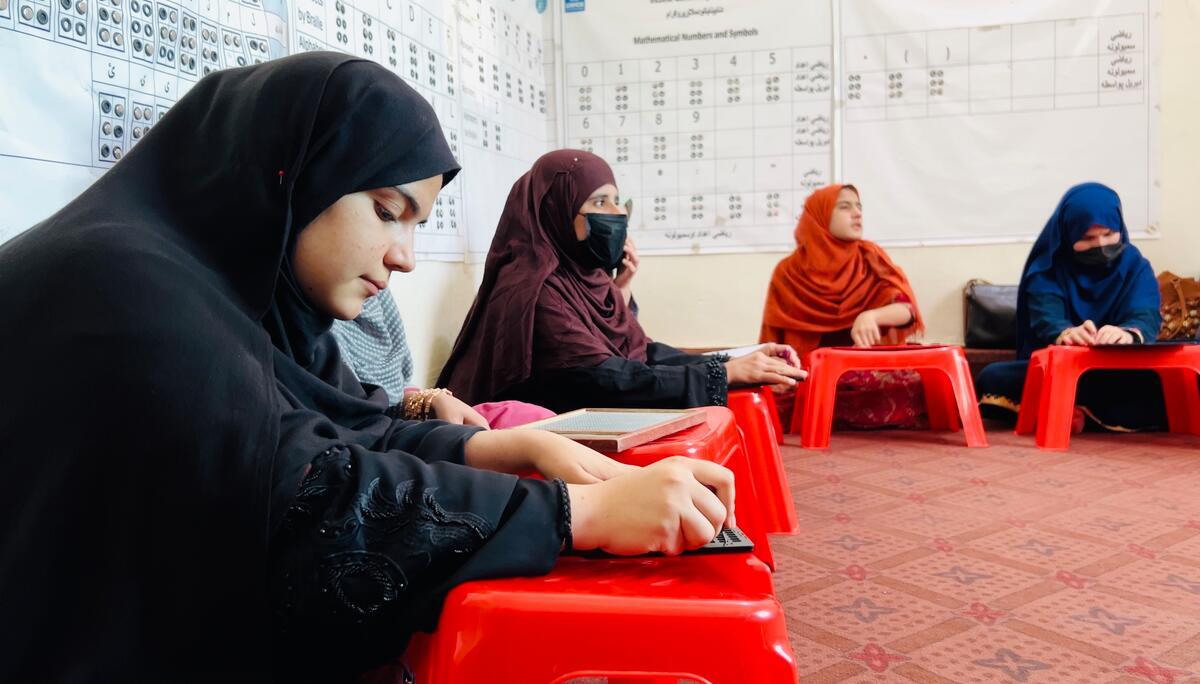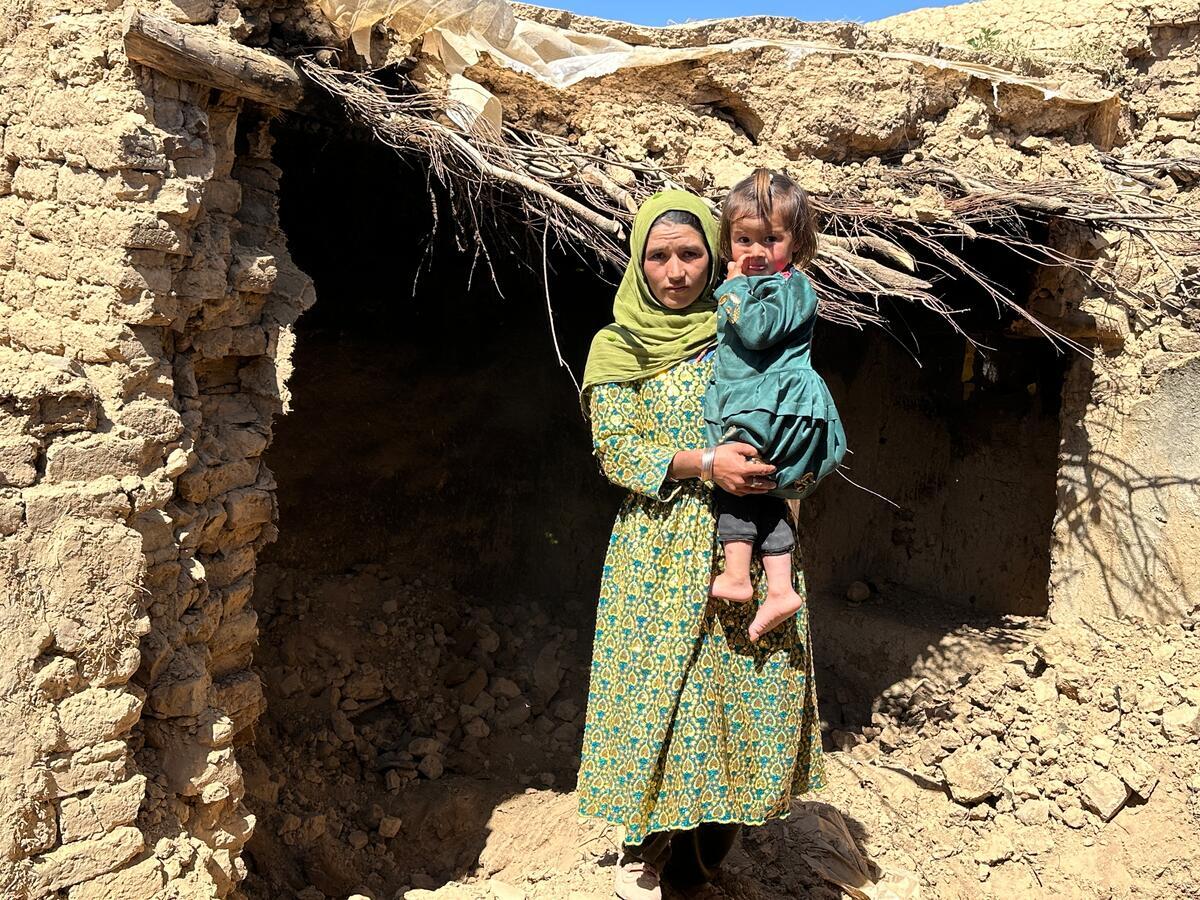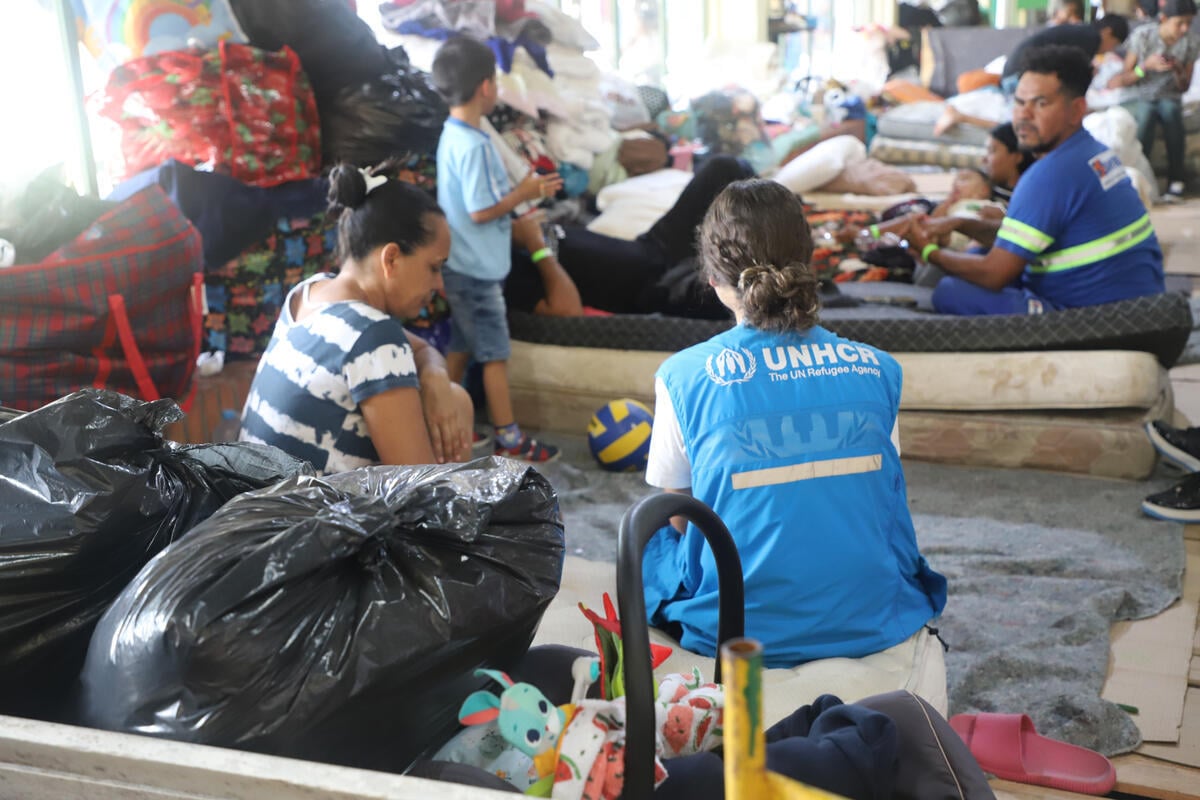For Afghan refugee miners, bright dreams beckon from the depths
For Afghan refugee miners, bright dreams beckon from the depths

MALGAGAI, Pakistan, December 14 (UNHCR) - As a child, Abdul Hadi, a 38 year old Afghan refugee, dreamt of becoming a doctor and would imagine himself wearing a white coat and walking down the bright corridors of a hospital.
Hunched over in a dark and cramped mine shaft, Hadi continues to hold-fast to his hopes of a brighter future, but those aspirations are now for his children. Working 200 metres underground in a primitive mine in Pakistan's Balochistan province, Abdul digs for chromate, a mineral used in steel production.
The mine, near the Malgagai refugee village, has been Hadi's workplace since leaving school at 17 after his father became ill and could no longer support the family. "I looked around for work when I left school, and the only available choice was to work in the mines because there were no other opportunities," he remembers.
A native of Afghanistan's Zabul province, Hadi works with around 50 other miners, most of them Afghan refugees. A typical day involves climbing, stooping, lifting heavy objects and standing for hours on end.
Despite the rigors of the work, he has no complaints. The job is regular and pays better than many others, says Hadi. He is able to support his family and now hopes that it will be his 14 year-old son who goes on to become a doctor. He has enrolled the boy in a school in a nearby town where he studies alongside Pakistani children. His younger sons are studying in the UNHCR supported secondary school in the camp.
"My work is difficult. Being a miner can be no one's dream job," he concedes. "But if it means a better future for my family then it is worth it."
Six years old when his family fled Afghanistan in the wake of the 1979 Soviet invasion, Hadi has lived in the Malgagai refugee village ever since. An estimated 80 percent of the men in the village earn their living through mining. Most work in the chromate mines, while others travel to more distant coal mines.
The work is hazardous, and the men are exposed to an array of dangers including the risk of a cave-in, mine fire or exposure to harmful gases. Because of these shared threats, the small community of refugee miners sees itself as an extended family, said Hadi, and the mood among them is surprisingly upbeat.
Haji Baqi, a Pakistani mine owner and Hadi's boss, estimates that "roughly 45 to 50 percent" of all miners in Balochistan are Afghan refugees.
"I have scores of Afghan labourers working in my orchards as well," he said. "They are resourceful people and a great support to our businesses because they are hardworking and honest," he added.
The miners are paid different wages depending on the nature of their job. Miners like Hadi, who dig and drill before hauling the ore on their backs to a point where it is loaded on donkeys, are paid 10,000 rupees a month (around US$ 113). Young and less experienced workers receive around US$ 50 a month for bringing the loaded donkeys to the surface.
Taking a break with fellow miners in a dimly-lit space in a far corner of the mine, Hadi contemplates the future and looks forward to a job with fewer physical demands. "I would like to be a watchman if I could make living out of that. But for now I'm thankful to Allah for giving me the strength to work and take care of my family," he said.
More than 30 years after the first wave of Afghans arrived in Pakistan, the country continues to generously host some 1.7 million refugees. More than five million Afghans have returned home since 2002, most with UNHCR assistance. The province of Balochistan is home to the country's second largest refugee population, with most having originated from the volatile south of Afghanistan.
By Duniya Aslam Khan, in Malgagai refugee village, Balochistan, Pakistan

